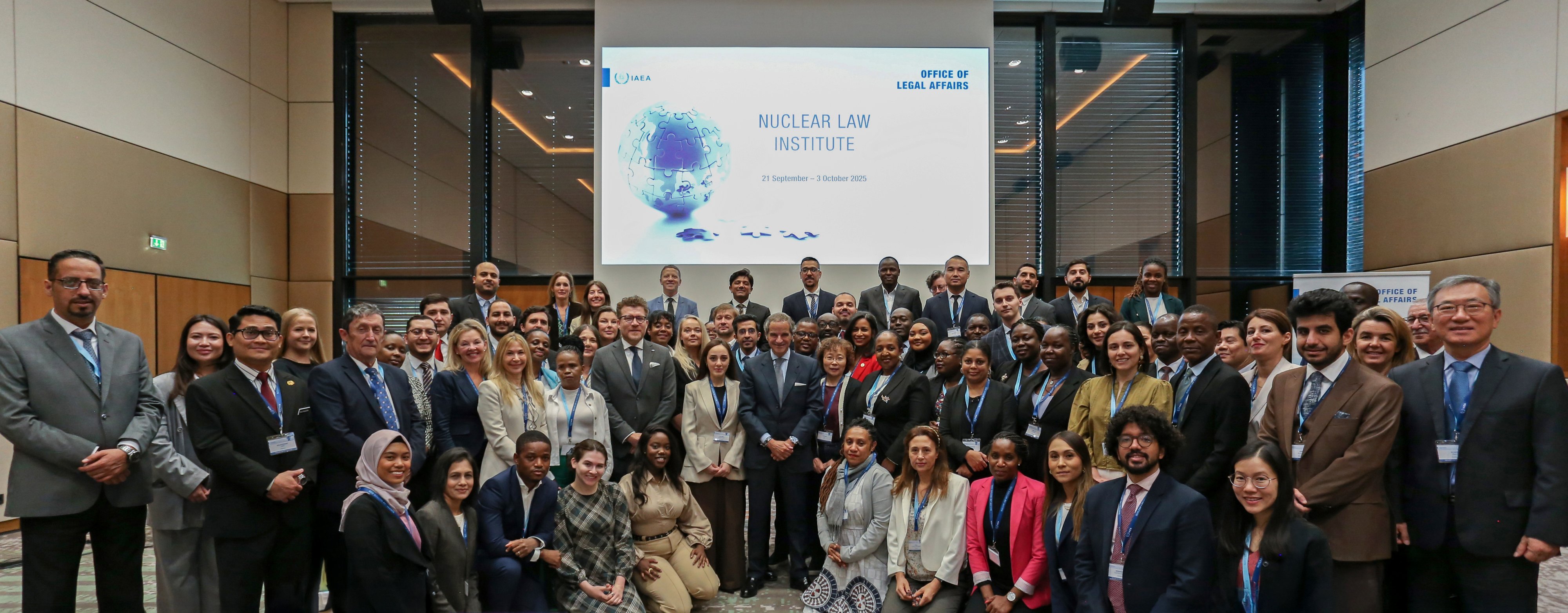In 2025, the Nuclear Law Institute reached a milestone: more than 800 lawyers, representatives of nuclear regulatory authorities and other officials from IAEA Member States around the world have received training in nuclear law since the Institute’s launch in 2011.
This year’s session, held from 21 September to 3 October in Vienna, brought together 64 participants from 54 countries, continuing the Institute’s tradition of fostering the exchange of expertise and facilitating international collaboration in the field of nuclear legislation. Participants reflect the nuclear world, coming from countries with long experience with nuclear power, countries considering embarking on a nuclear power programme and countries with limited non-power nuclear applications, including small island nations.
Aimed at building skills for drafting national nuclear legislation, the Institute’s training addresses the four pillars of nuclear law: nuclear safety, security, safeguards and civil liability for nuclear damage. The participants heard from nuclear law experts, drafted nuclear legislation and applied their knowledge and experience in a complex case study.
“The Nuclear Law Institute is one of the most important training programmes we have. The NLI is the space to learn, exchange and prepare for the challenges ahead.[…] We will continue delivering the NLI and doing more in training officials in nuclear law” said IAEA Director General Rafael Mariano Grossi in his keynote address on the future prospects of nuclear law.
Special sessions of the Institute offered different perspectives on nuclear law and highlighted interactions with other areas of law, such as the financial aspects of waste management and decommissioning of nuclear installations, synergies between safety and security, the relationship between environmental law and nuclear law, and nuclear trade.

